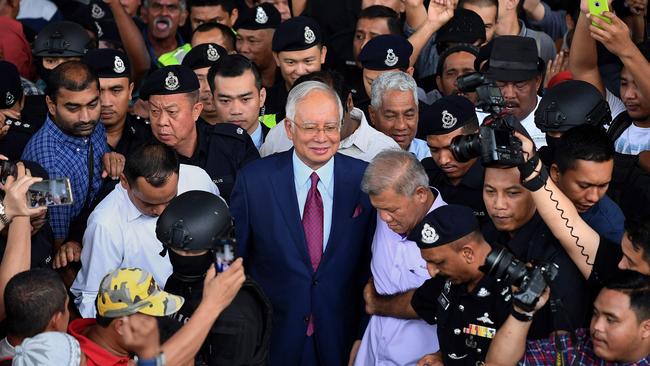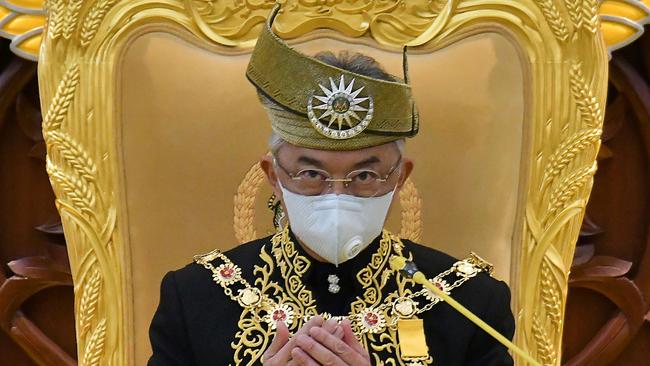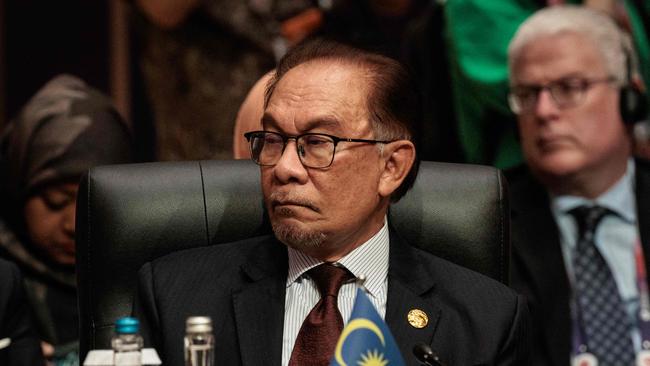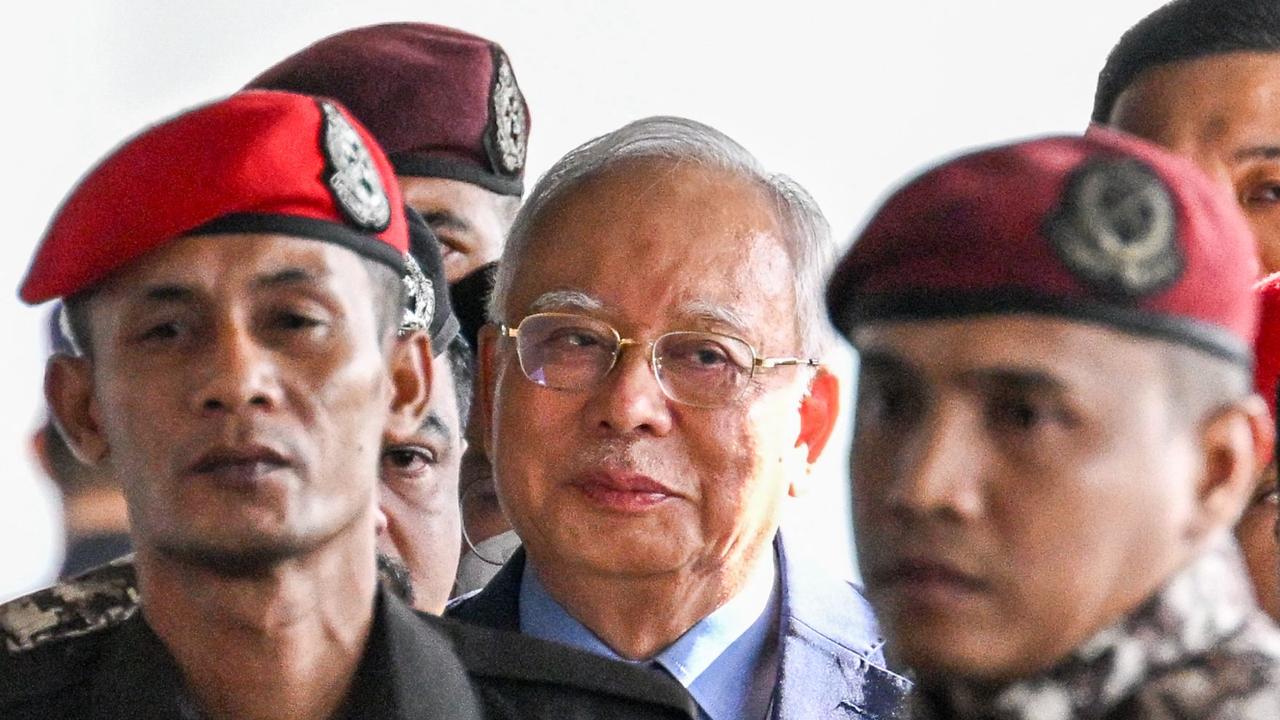Malaysian king weighs pardon for childhood friend Najib Razak
A royal pardon is the last hope for the former prime minister who has exhausted all legal avenues of appeal.

Malaysia’s disgraced former prime minister Najib Razak could be a free man by the end of this month despite serving only a fraction of his graft sentence, if the country’s outgoing king – a childhood friend – grants his application for a pardon in his last days as regent.
The country’s six-member pardons advisory board, which includes Prime Minister Anwar Ibrahim, is scheduled to meet next week to discuss the 70-year-old’s clemency application, although the final decision is at the discretion of the king whose term ends on January 31.
Najib applied for a pardon within weeks of his August 2022 jailing for corruption involving a subsidiary of the 1MDB state development fund, which was plundered of more than $US4.5bn under his administration.
He has served just 17 months of a 12-year sentence and still faces three criminal cases over charges he illegally received $US681m of 1MDB funds, laundered 27m ringgit belonging to subsidiary company SRC International, and committed a breach of trust involving 6.6bn ringgit in government funds paid to an Abu Dhabi’s state-owned investment vehicle.
A royal pardon from King Sultan Abdullah Sultan Ahmad Shah, ruler of Najib’s home state of Pahang, is his last hope given the former prime minister has exhausted all legal avenues of appeal, and it would extinguish all pending cases against him.

Najib’s lawyer Shafee Abdullah has argued his client did not receive a fair trial and in a statement last week said both he and Najib “are in the dark about the state of our client’s petition for pardon”.
Malaysia analyst James Chin puts the odds of a full pardon for Najib at 50/50, possibly higher for a partial clemency that would shorten his sentence but prevent him from contesting the next election, likely to be held in 2027.
“There are a lot of reasons they might want to give him this pardon but they want to draw a line under this (1MDB) issue,” Dr Chin, a politics lecturer at the University of Tasmania, told The Australian. “They think if they give him a pardon now, there would be a one or two-week controversy and then everything will die down. It’s ultimately a question of whether they think they can get away with it.”
Such a decision would not be without precedent given the previous king, Sultan Muhammad V, pardoned Anwar Ibrahim in 2018, immediately after the election victory of the Pakatan Harapan coalition – the ill-fated alliance between his People’s Justice Party and that of his political nemesis Mahathir Mohamad.
Mr Anwar had been given a second politically motivated prison sentence for sodomy and corruption at the time.
Public opinion in Malaysia may be against clemency for the kleptocratic Najib, despite his popularity among many supporters of his United Malays National Organisation party, but criticising the Malaysian king is high risk. The largely ceremonial position, rotated every five years between nine royal families, is nonetheless a figure that commands great respect and attacking the king’s integrity is regarded as an act of sedition.
Clemency for Najib could prompt a severe backlash against Mr Anwar, however, who has struggled since forming a coalition government with UMNO in late 2020 to shrug off allegations he has compromised his democratic principles for power.

BowerGroup Asia director Arinah Najwa told the Straits Times “the country’s reputation may be affected if they decide to pardon him as it can impact how Malaysia is perceived by other countries’ leaders and investors”.
“Najib has other charges which are still ongoing, so it may not make sense to have a conversation about pardons,” she said.
Political commentator P Gunasegaram wrote this week that a pardon would be a “disaster for Malaysia”, with lasting implications for the government, the economy and the population.
“There is no reason whatsoever why a convicted felon facing other more serious criminal charges and responsible for billions of ringgit in losses … should receive a pardon,” he said.
“If he does, the definite inference is that it is a political deal of the worst kind.”



